Exploring open-source discovery through a prototype project
VALA2022 CONCURRENT 17
Wednesday 15 June 2022, 15:50 – 16:20
Danielle Johnson
- Manager, Digital Experience
- Deakin University Library
Kathryn Martin
- Manager, Digital Discoveries
- Deakin University Library
Jane Miller
- Director, Digital Libraries and Repositories
- Deakin University Library
Please tag your comments, tweets, and blog posts about this session: #vala2022 #s17
Read the paper and view the presentation recording and slides here:
Abstract
This paper explores Deakin Library’s open-source discovery layer prototype project, including the initial drivers, project process, lessons learned, and outcomes. It discusses both technical and experience aspects of establishing our prototype open-source discovery platform. Most academic libraries use proprietary platforms to deliver search and access services. Deakin Library saw an opportunity to build a proof-of-concept open-source discovery layer platform as a way of exploring some of the opportunities, challenges and obstacles related to aggregating content within a single index, interface design and integration with other sources and systems.
Abstract
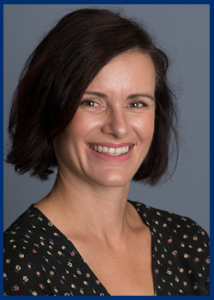 Danielle Johnson has worked in academic institutions since 2000. Her early library work life was spent coordinating a combined library reference/IT help desk and working with students teaching information literacy skills and digital library products and platforms, before transitioning into library website coordination. In 2008, she left libraries to practice the dark arts of university IT, spending seven years in various roles including website administrator, functional analyst, web development project manager, and service manager. During that time, she completed her Master’s degree in information and knowledge management. Now, as Manager Digital Experience Deakin University, she leads a cross-functional team engaged in UX research and testing, digital content management, experience design and front-end development, applications and integrations, digital project management and emerging technologies. Her team aims to provide consistent, high-quality, and scalable digital solutions for library users. In her role, she’s worked to establish a collaborative, end-to-end approach to identifying, designing and developing and managing experiences. Danielle is future-focussed, and actively seeks opportunities to deliver digital experiences that extend Deakin’s reputation as a driver of leading-edge innovation. At the same time, she has a keen eye on delivering practical, continuous improvement to today’s library experience challenges.
Danielle Johnson has worked in academic institutions since 2000. Her early library work life was spent coordinating a combined library reference/IT help desk and working with students teaching information literacy skills and digital library products and platforms, before transitioning into library website coordination. In 2008, she left libraries to practice the dark arts of university IT, spending seven years in various roles including website administrator, functional analyst, web development project manager, and service manager. During that time, she completed her Master’s degree in information and knowledge management. Now, as Manager Digital Experience Deakin University, she leads a cross-functional team engaged in UX research and testing, digital content management, experience design and front-end development, applications and integrations, digital project management and emerging technologies. Her team aims to provide consistent, high-quality, and scalable digital solutions for library users. In her role, she’s worked to establish a collaborative, end-to-end approach to identifying, designing and developing and managing experiences. Danielle is future-focussed, and actively seeks opportunities to deliver digital experiences that extend Deakin’s reputation as a driver of leading-edge innovation. At the same time, she has a keen eye on delivering practical, continuous improvement to today’s library experience challenges.
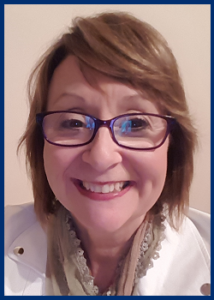 Kathryn Martin has worked in the academic library environment for many years in various capacities. She completed her Library Science degree in 1997, and later Prince2 and Agile project management certificate in 2009. She has worked in most areas of the library including the loans desk, acquisitions, cataloguing, reference, lead the I.L.M.S. team, managed the audio-visual department, and held her current position as manager of the Discovery Technologies team since 2014. Kathryn was chair of the Australasian Innovative User Group from 2011 – 2012. Her responsibilities include the maintenance and improvement of the discovery layer, configuration, problem analysis and resolution of library services platform issues, facilitation of integrations with these services and ensuring that system architecture enables a positive user experience for clients. She has also managed several large projects, including cataloguing of significant slide and pamphlet collections early in her career, and more recently transitioning the library to a new version of the I.L.M.S., assisting the I.T. department with deploying various significant technology updates to Library workstations and implementing various integrations with the library system. Kathryn has a client focus and a passion for innovation in this complex and ever-changing technology driven environment.
Kathryn Martin has worked in the academic library environment for many years in various capacities. She completed her Library Science degree in 1997, and later Prince2 and Agile project management certificate in 2009. She has worked in most areas of the library including the loans desk, acquisitions, cataloguing, reference, lead the I.L.M.S. team, managed the audio-visual department, and held her current position as manager of the Discovery Technologies team since 2014. Kathryn was chair of the Australasian Innovative User Group from 2011 – 2012. Her responsibilities include the maintenance and improvement of the discovery layer, configuration, problem analysis and resolution of library services platform issues, facilitation of integrations with these services and ensuring that system architecture enables a positive user experience for clients. She has also managed several large projects, including cataloguing of significant slide and pamphlet collections early in her career, and more recently transitioning the library to a new version of the I.L.M.S., assisting the I.T. department with deploying various significant technology updates to Library workstations and implementing various integrations with the library system. Kathryn has a client focus and a passion for innovation in this complex and ever-changing technology driven environment.
![]()
This work is licensed under a Creative Commons Attribution-NonCommercial-NoDerivs 3.0 Unported License


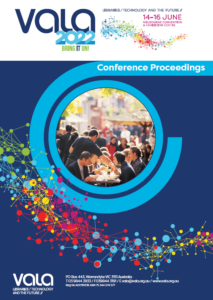
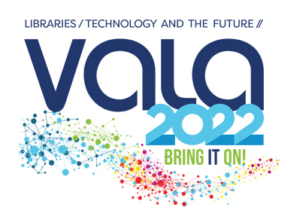
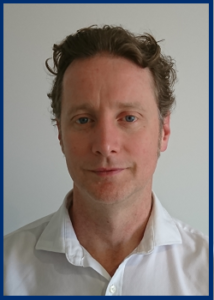 Dr Ben Chadwick is Director, Research and Information Services at Education Services Australia where he oversees the Schools Catalogue Information Service (SCIS) and the Australian Education Vocabularies (IEV), including the linked data Schools Online Thesaurus (ScOT). Ben grew up on Turrbal/Jagera country but now lives on Wurundjeri land, in Brunswick East, with his partner, two daughters and a greyhound.
Dr Ben Chadwick is Director, Research and Information Services at Education Services Australia where he oversees the Schools Catalogue Information Service (SCIS) and the Australian Education Vocabularies (IEV), including the linked data Schools Online Thesaurus (ScOT). Ben grew up on Turrbal/Jagera country but now lives on Wurundjeri land, in Brunswick East, with his partner, two daughters and a greyhound.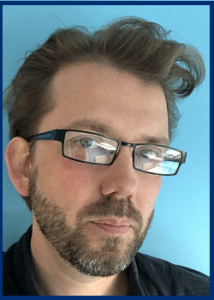 Ned Potter is an Academic Liaison Librarian at the University of York, and a Trainer for various organisations including the Bodleian and the British Library. He has worked with Libraries across four continents, providing marketing and communication expertise. His book The Library Marketing Toolkit was published by Facet in 2012. Ned can be found online at ned-potter.com and on Twitter at @ned_potter.
Ned Potter is an Academic Liaison Librarian at the University of York, and a Trainer for various organisations including the Bodleian and the British Library. He has worked with Libraries across four continents, providing marketing and communication expertise. His book The Library Marketing Toolkit was published by Facet in 2012. Ned can be found online at ned-potter.com and on Twitter at @ned_potter.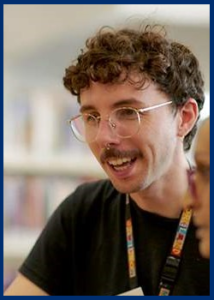 Teishan Ahearne is a library worker and media trainer who has a passion for learning and empowering communities. Teishan is the eLearning and New Technology Facilitator at Moreland City Libraries where they coordinated Moreland’s digital literacy programming. Teishan has worked with both adults and youth to support them learning technology in a variety of settings including public libraries, community radio, and community projects.
Teishan Ahearne is a library worker and media trainer who has a passion for learning and empowering communities. Teishan is the eLearning and New Technology Facilitator at Moreland City Libraries where they coordinated Moreland’s digital literacy programming. Teishan has worked with both adults and youth to support them learning technology in a variety of settings including public libraries, community radio, and community projects.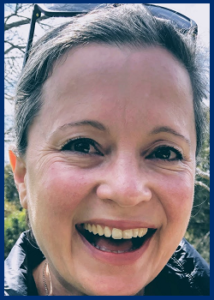
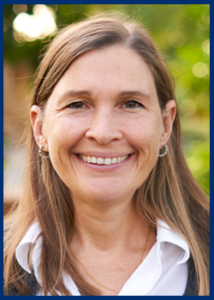
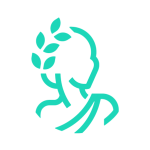
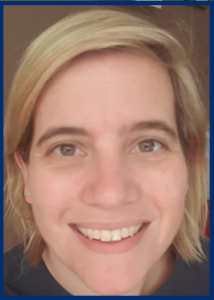 Alexis Tindall joined the University of Adelaide Library as Manager, Digital Innovation in April 2020. Prior to that she worked with the Australian Research Data Commons, and related projects, to support data-enabled humanities, arts and social sciences research, delivering strategic projects and training around data and research infrastructure. She has extensive project management experience in diverse environments. Before joining the eResearch community, she worked in natural history and social history museums, and is passionate about digitisation, open scholarship and improving digital access to GLAM collections and research data.
Alexis Tindall joined the University of Adelaide Library as Manager, Digital Innovation in April 2020. Prior to that she worked with the Australian Research Data Commons, and related projects, to support data-enabled humanities, arts and social sciences research, delivering strategic projects and training around data and research infrastructure. She has extensive project management experience in diverse environments. Before joining the eResearch community, she worked in natural history and social history museums, and is passionate about digitisation, open scholarship and improving digital access to GLAM collections and research data.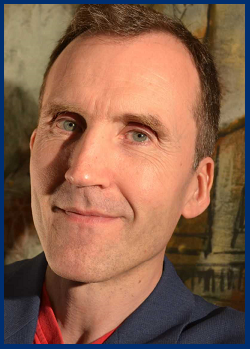
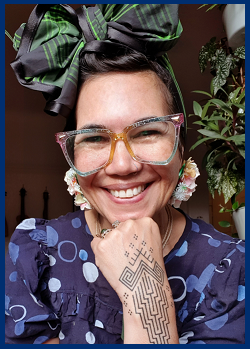
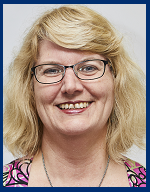 Michelle is passionate about library services, all things digital and professional development, which make up her role as Information Services Coordinator at Casey Cardinia Libraries. She is a past-recipient of a Ramsay Reid Scholarship (State Library of Victoria), alumni of the Aurora Institute, is a published author and has presented at many conferences and seminars around Australia, as well as in the US. Michelle is heavily involved in professional development through her involvement in a number of committees, including VALA.
Michelle is passionate about library services, all things digital and professional development, which make up her role as Information Services Coordinator at Casey Cardinia Libraries. She is a past-recipient of a Ramsay Reid Scholarship (State Library of Victoria), alumni of the Aurora Institute, is a published author and has presented at many conferences and seminars around Australia, as well as in the US. Michelle is heavily involved in professional development through her involvement in a number of committees, including VALA.